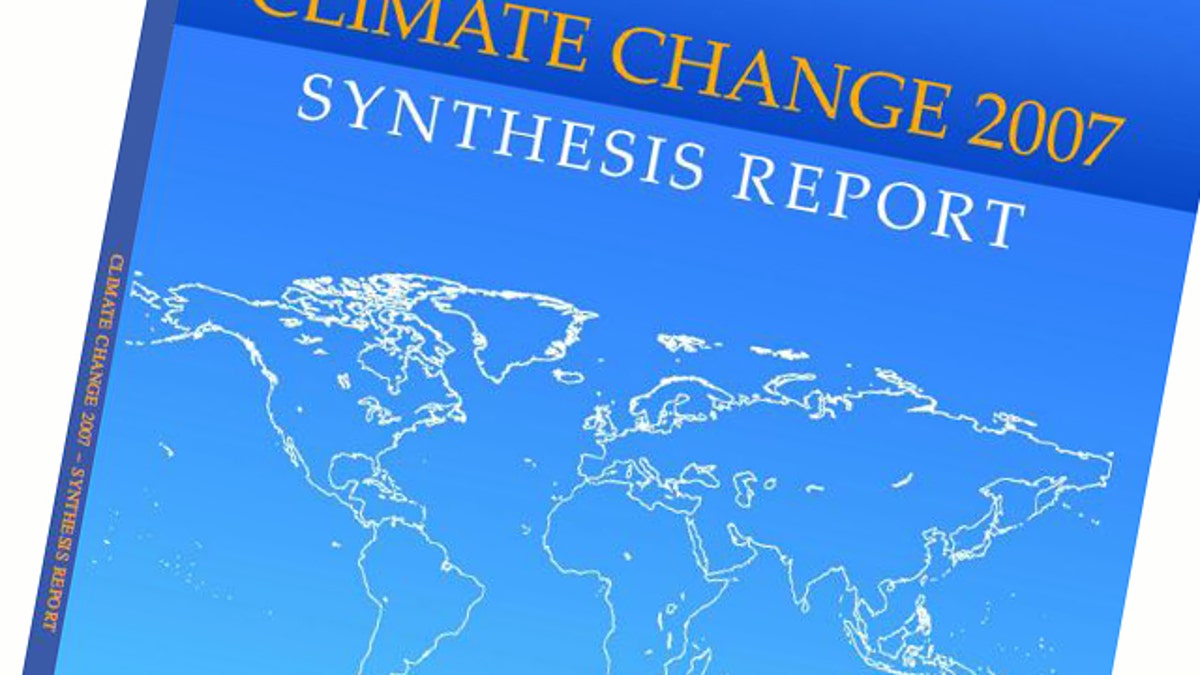
The cover of the IPCC's fourth assessment report to the U.N., "Climate Change 2007: Synthesis Report," more frequently referred to as AR4. (Intergovernmental Panel on Climate Change (IPCC))
The U.N.'s controversial climate report is coming under fire -- again -- this time by one of its own scientists, who admits he can't find any evidence to support a warning about a climate-caused North African food shortage.
The statement comes from a key 2007 report to the U.N., and asserts that by 2020 yields from rain-fed agriculture could be reduced by up to 50% in some African countries thanks to climate change.
But this weekend, a key author of the team behind that report told The Sunday Times that he could find no evidence to support his own group's claim. The revelation follows the retraction by the Intergovernmental Panel on Climate Change (IPCC) of a claim that the Himalayan glaciers might all melt by 2035, dubbed 'Glaciergate' by commentators.
Read more: The article behind the claims.
The newest controversial claim could become a very important error in the IPCC's reporting, because it comes not only from the IPCC's report on climate change impacts -- called Assessment Report 4, or AR4 -- but is also repeated in its "Synthesis Report." That report is the IPCC's most politically sensitive publication, distilling its most important science into a form accessible to politicians and policy makers.
Its lead authors include IPCC chairman Rajendra Pachauri himself, who has quoted it in speeches, as has U.N. secretary-general Ban Ki-moon.
Speaking at the 2008 global climate talks in Poznan, Poland, Pachauri said: "In some countries of Africa, yields from rain-fed agriculture could be reduced by 50% by 2020." In a speech last July, Ban said: "Yields from rain-fed agriculture could fall by half in some African countries over the next 10 years."
Speaking this weekend, Professor Chris Field, the new lead author of the IPCC's climate impacts team, said: "I was not an author on the 'Synthesis Report,' but on reading it I cannot find support for the statement about African crop yield declines."
This sort of claim should be based on hard evidence, said Robert Watson, chief scientist at Defra, the U.K.'s department for environment food and rural affairs, who chaired the IPCC from 1997 to 2002.
"Any such projection should be based on peer-reviewed literature from computer modelling of how agricultural yields would respond to climate change. I can see no such data supporting the IPCC report," he said.
For more on this topic, read The Times of London.
